The Paper reporter Wang Zheng< /span>
As a well-known screenwriter in the industry, "China Films such as "Partner", "Dear" and "Win the Championship" are well-known. In middle age, when he directed the film for the first time, he pointed the camera at his hometown, Changsha, more than 300 kilometers away from Jishou in western Hunan. Speaking of which, it is not too surprising for a director to anchor his debut work in his own hometown. Zhang Ji's old cousin in western Hunan, the writer Shen Congwen made his debut in the literary world when he wrote "Border Town".
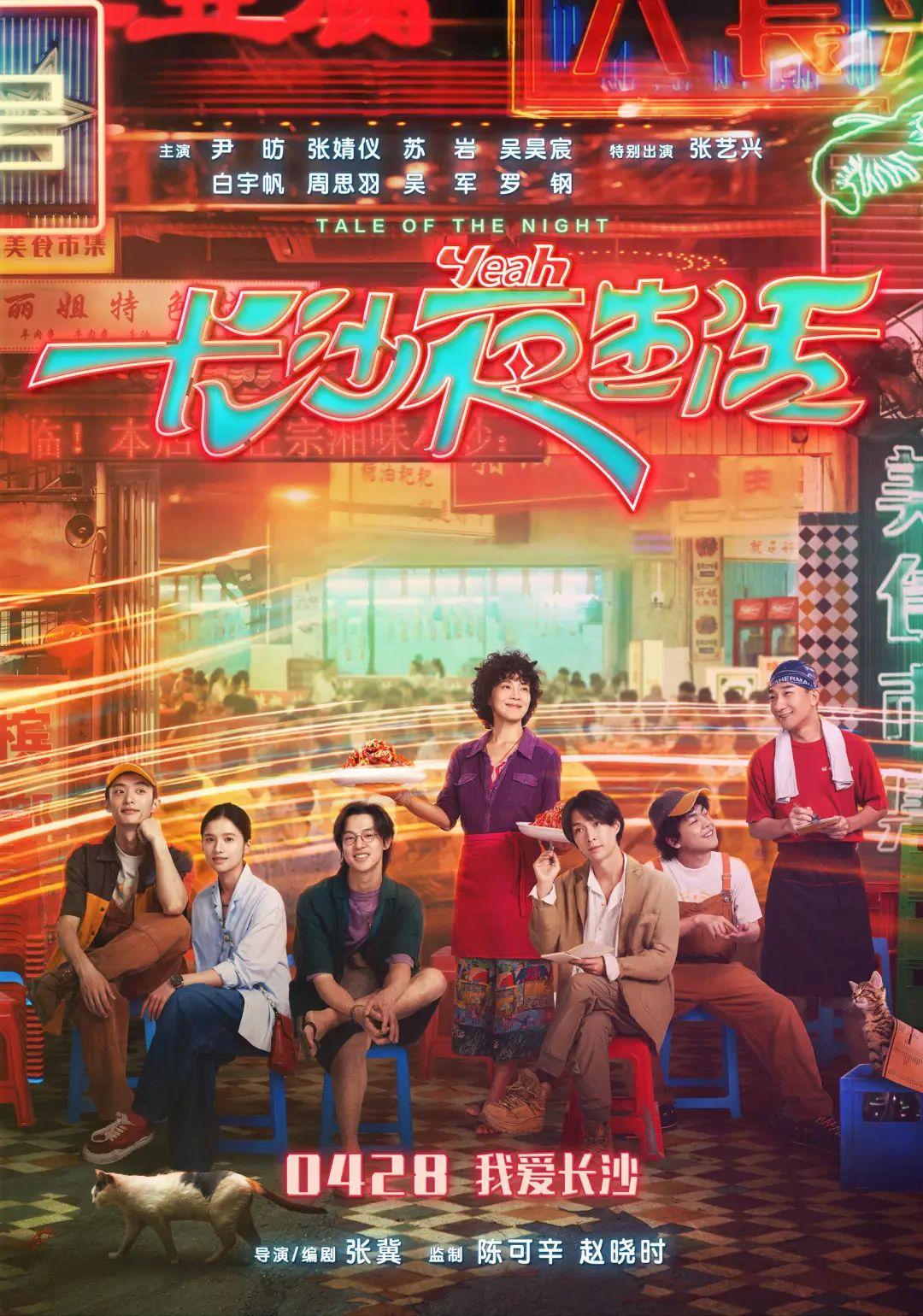
"Changsha Nightlife" poster
"I am very calm these days. I have been a screenwriter for so many years , After so many dramas, the first half of this year was the most confusing period for me in the face of movies. I wonder if the future of movies will disappear? What reason do those young people who watch short videos and play with scripts kill? , into the cinema." At the Beijing premiere of "Nightlife in Changsha" with relatives and friends, Zhang Ji asked himself in the opening remarks, "But this year I took out the first film that is completely my own. I choose Believe in movies in the most traditional way."
"The origin of this movie is that I was in 2022 The second time I came to Changsha to do script research for the conception of the story. I stood at the intersection of Jiefang West, watching groups of young people, and the heat wave they rushed towards life infected me. I was still wearing a mask at the time, and I was so moved I almost shed tears. To tell the story of this movie well, I have two beliefs: one is to look back at my hometown, and the other is to sing a hymn to ordinary people. During the 32 shooting nights, I saw The most common ones are the fireworks and lights in Changsha, both of which are created by ordinary people, and they are enough to complement the starry sky above their heads." Zhang Ji said.

"Changsha Nightlife" director Zhang Ji
This movie viewing event for relatives and friends is also surging news The reporter has had a special experience in recent years-in recent years, domestic movie premieres basically have an essential link: the director's colleagues, relatives and friends are called out after the screening, and they all stand up to share their impressions. But what can you say on such an occasion? Except for boasting. But it's also boasting, polite entertainment and business bragging, or expressing the truth and speaking from the heart, which can always be heard. In this part of the "Changsha Nightlife" relatives and friends field, you can hear the latter two that the speakers are talking about.
Surprisingly, whether it is with Zhang Ji Chen Sicheng, Shu Huan, Li Xiaofeng, etc. who are of the same generation can still be Wang Hongwei as his predecessor. Everyone almost calls Zhang Ji "Brother Ji" when they get up. Of course there are Zhang Ji's mature and prudent appearance and his reputation as the best screenwriter of the Golden Rooster Award, but it is more likely that they have gained their own emotions and concerns from this movie, which invisibly lengthened the time for their speeches. duration.
In recent interviews, Zhang Ji often mentioned eight The word, "Deep sorrow and shallow appearance, short words and long feelings." "Changsha Nightlife" has won the wonderful meaning here. So many colleagues are willing to stand up and say something. It is nothing more than that this film, in addition to artistic expression, also keenly captures a kind of emotion: after the epidemic, the healing of the hearts of the world. In other words, this kind of emotion and the plot of the movie are the exterior and interior of each other, and he handles it in a proper and ubiquitous manner in the film.
When the possibilities for making movies seem to be exhausted, cinema movies are When the prospects became chaotic under the pressure of streaming media and small videos, Zhang Ji returned to a quiet and calm narrative in this movie, which not only touches people's stomachs, but also directly hits people's hearts. Recently, he accepted an exclusive interview with The Paper journalists in Beijing.
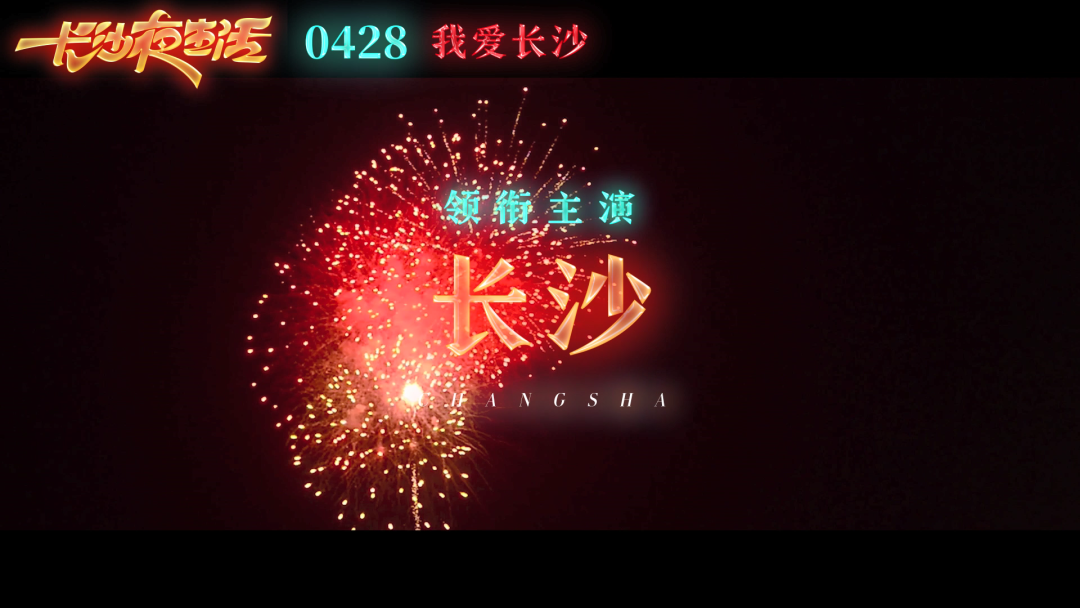
"Nightlife in Changsha" Stills
"If it is divided by performance, I am an experience group"
Paper News:As a screenwriter, you are already well-known in the industry. Why did you decide to be the director yourself after writing the script of "Changsha Nightlife" this time?
Zhang Ji:After the script was written, it actually circulated among the mainstream director circles in Beijing, but it has not found a suitable director, or I have never met a director who understands the film well. movie people. I didn't expect to meet this time in Changsha. This matter must be introduced to Hunan Radio and Television. When they first came into contact with it, they may also think that this film is for entertainment and entertainment, and for consumption in Changsha. They did not expect that this is a film about emotions. It is very Changsha, but it is not only intended to show the fireworks of this city, the audience can taste and read more things.
We even went to Changsha more than a month ago to make up A scene was filmed, and several hosts of Hunan Satellite TV, including Teacher He Jiong, were there. They filmed a scene where everyone eats, drinks and chats at the food stall of Sister Li (played by Su Yan). I only gave them an outline. They acted as ordinary Diners can play freely, completely reproducing the daily party scene, which is also a microcosm of Changsha nightlife. This is why we arranged the national premiere in Changsha this time and cooperated with Hunan Satellite TV.

"Nightlife in Changsha" Stills
The Paper:You are from Hunan. The debut of many writers will be anchored in the countryside, and the same is true for your directorial debut, although it is written in Changsha.
Zhang Ji:I am from Jishou in Xiangxi, a Tujia nationality, not far from Phoenix City, which is about 50 kilometers away. My hometown and Changsha are basically two parallel social systems. Changsha is the provincial capital of Hunan Province, and I often go there. In my impression, it has changed. When I was a child, I went to the old city. Frankly speaking, I felt a bit closed, and it would be a bit uncomfortable for outsiders to stay there. The first is the dialect. You know that the boundaries of Hunan are "different sounds for hundreds of miles, but different customs for thousands of miles." Some local dialects in Hunan may not be understood even by people from the same province. But when I go to Changsha in recent years, I feel that the city is becoming younger, more inclusive and open. I prefer Changsha now.
When engaging in literary and film creation, I believe in one sentence: no If you investigate, you have no right to speak. If a work wants to impress people, you have to go deep into life, get in touch with real people, and accumulate a lot of material. This time I specially arranged a period of time to go to Changsha to collect folk songs. Even during the epidemic, I saw many happy people on the streets of Changsha at night. People put it on—"presumptuous" in Changsha dialect has a much broader meaning than that in Mandarin, and it probably refers to people's cheerful and poetic state, which is a bit similar to a light comedy state. I felt that kind of "presumptuousness". During that time, I was immersed in Changsha's nightlife, and even forgot what Changsha was like during the day.

Zhang Jingyi as He Xixi
Paper News:Changsha's housing prices are relatively cheap, so there is not much pressure on everyone.
Zhang Ji:First of all, housing prices in Changsha are relatively cheap in provincial capitals, and young people do not have much pressure on mortgages. In addition, Changsha is also a "stove". It is really much cooler at night than during the day, and everyone is willing to go out at night. With so many cities in China, it doesn't mean that other cities don't have nightlife. My wife is from Chengdu, and the nightlife in Chengdu is relatively quieter, not as "rushing" as in Changsha, and the contrast with the daytime is not that great. Only in Changsha, there are really more people in the streets and alleys at night than during the day, which is particularly obvious.
The Paper:At the Beijing premiere of "Changsha Nightlife", director Wang Hongwei compared the film to a "literary sketch". There are many lines in it, and the writing is indeed full of charm and philosophical thinking. For example, what Sister Li said: The life of Changsha people starts with a bowl of noodles and ends with a bowl of noodles. Turn the wounds in life into the fragrance in the soup pot.

"Nightlife in Changsha" Stills
Zhang Ji:The previous sentence is what Changsha people say every day, "start with a bowl of noodles and end with a bowl of noodles", I just added the latter sentence. Changsha people often say two sentences, one is "before drinking, I belong to Changsha; after drinking, Changsha belongs to me". Although these words did not appear in the movie, the old Xie played by Mr. Wu Jun, his experience brought out a little sadness and a little optimism. Then there is a vulgar saying from Changsha people, "You will die* and face the sky". . In fact, there is no way to write lines as a screenwriter. If it is divided by performance, I am an experiential school. I have to enter that scene before I can write something.
"As a screenwriter, what is the most reliable thing for me? Reality, scene and prototype"
The Paper:Since you were born in Xiangxi, you have to mention your literary predecessor, Mr. Shen Congwen, an old cousin in Xiangxi. I believe it is impossible for him to have no influence on you. Why not direct a Xiangxi-style work?
Zhang Ji:Maybe it's the so-called feeling of being close to home, like when I go back to Jishou, old classmates sit drinking and chatting together, no one will regard me as a so-called "well-known" "Screenwriter", still play cymbals on me (dialect, pointing at people to make fun of, for fun), I can't keep a distance from them, and it is difficult to have in-depth observation and thinking.
There are many misunderstandings in the mirror of literature in Xiangxi— —After I came to live and work in Beijing, I saw young people working in big factories, and people like me wandering here, those who were beaten by life, so I could write "Chinese Partners". I still prefer to write about the people around me, at least for now I dare not touch my hometown, maybe when I am more mature, I will write there. The emotion for my hometown is always there, and the culture of Xiangxi is also some background color of my character, which will follow me for a lifetime.
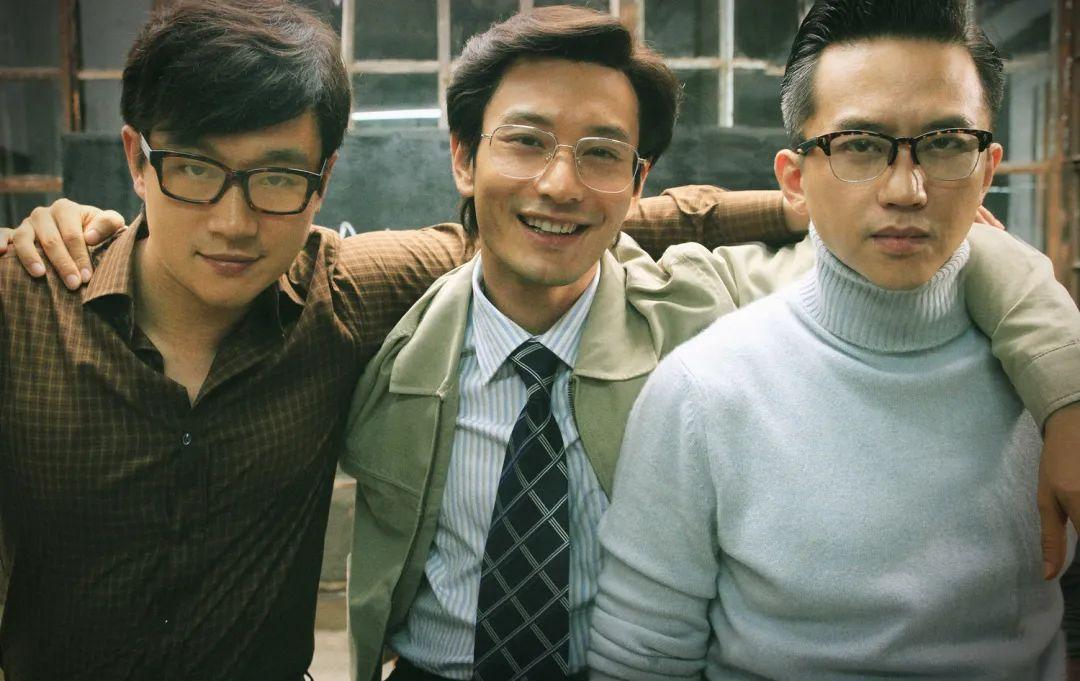
"Chinese Partner" Stills
Paper News: In your recent speeches, you often mention eight words, "deep sorrow and shallow appearance, short words and long feelings". This is how I feel when I read Shen Congwen's works. And in "Nightlife in Changsha", those college students who had dinner to celebrate "Cloud Graduation" sang "Farewell" also made people feel the same emotion.
Zhang Ji:I am reluctant to mention Mr. Shen Congwen. Although the geography is close, I know the anecdotes of Mr. Shen in his hometown, including the part written in his works about Xiangxi. Back then, my father sent me to study in Beijing, hoping that after I finished my studies, I would return to my hometown to be a bank clerk, and that would be the way I would be in my life. I really fell in love with literature and art in Beijing. I was just 18 years old that year, and one night a brother sent me a book called "One Hundred Years of Solitude". I didn't close my eyes for two days and nights, and read it in one sitting. What shocked me was not only the book itself, but also the fact that I read this book in Beijing.
In Xiangxi, the daily life of local literati is to write Writing calligraphy is either talking about Shen Congwen with open mouth. For me in my teenage years, I felt that something was wrong. When I was a student, I preferred to read Lu Xun's works, and I liked to pay attention to more grand issues. In Shen Congwen's works, I can read the beauty of the text, but it can't excite me, or it has nothing to do with me. When I was about 30 years old, I went back to Xiangxi once, walking on the winding mountain road, watching the clouds and mist, I suddenly realized that the Xiangxi described by Shen Congwen was also "real", but he described it in a different way. At that moment, I seemed to understand him more or less.

Bai Yufan as Chen Qingzhi
The Paper: Can you talk about how you got into screenwriting?
Zhang Ji:As a screenwriter, I am not from a major. From the very beginning, I learned the working methods of Hollywood screenwriters. I read books by Robert McKee and Syd Field, including Blake Snyder's "Save the Cat". Learned by imitating. When I first entered the screenwriting industry, I was also a "gunner screenwriter", and I also learned how to be a screenwriter by drawing an outline. I found that drawing the structure through the rules of Hollywood, so that it is faster to get started writing characters. At that time, the habit of domestic screenwriters was either to learn from Soviet films, or to start from a literary point of view. In fact, there was no clear set of effective working methods. The way Hollywood screenwriters write scripts is to simplify, first to build a framework, and then to fill in things in categories. The scripts produced in this way can be said to be "jobs", but the quality is basically stable, and it is also well connected with its film industry system.
The Paper: But just like you mentioned "Chinese Partner", including "Dear" and "Winning Championship", which you cooperated with director Kexin Chen, are all doing their best in their respective fields To push the boundaries of possibility. This is not comparable to a sentence of "doing a job".
Zhang Ji:Writing "Partner in China", Lao Yu (Yu Minhong) touched me a lot. No matter how good a screenwriter is, his story can't be written. He is so interesting, the logic of his behavior is often unexpected, and he often does not follow the rules. Facing such a person, you can’t sum it up in one sentence. He is vague. This kind of vagueness is not an unclear feeling, but just like life itself. He is multifaceted and complex, supporting his every behavior. logic, and not just one reason. This leads my writing to a deeper level.
The Paper: Let's put it this way, how did you impress Chen Kexin on the project of "Chinese Partner"?
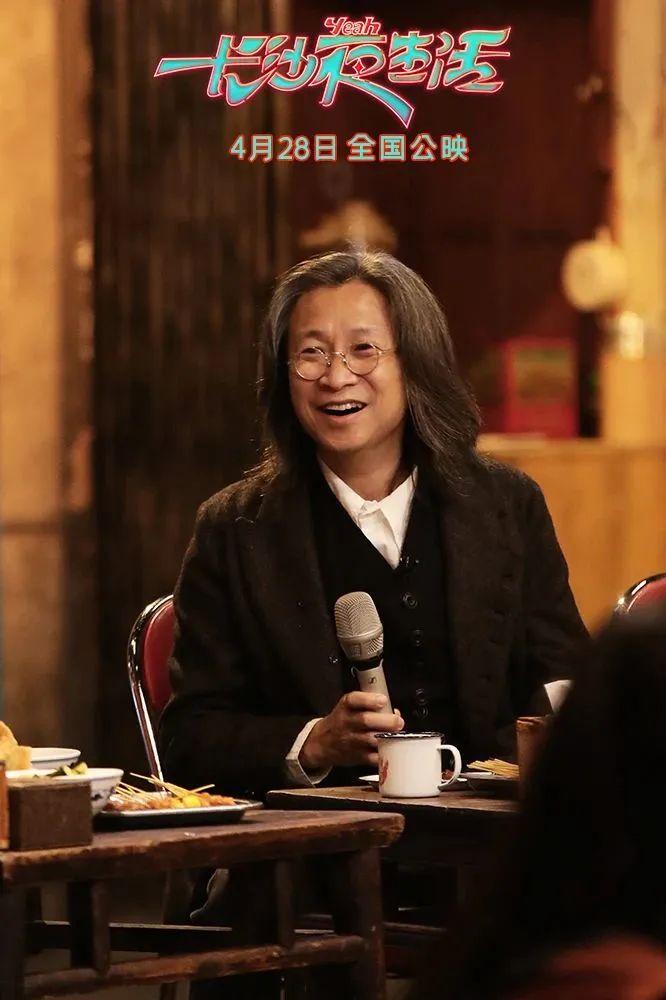
Chen Kexin served as the producer of "Changsha Nightlife"
Zhang Ji:I remember that one afternoon, Director Chen Kexin found more than 20 senior screenwriters to screen. Frankly speaking, he is a very picky person in art, and he may have been a little tired when he was going to meet me, so he asked me a question, what do you think of the main characters in the script? I expressed my opinion frankly: “Turtle” Cheng Dongqing is Liu Bang, and “Sea Turtle” Meng Xiaojun is Xiang Yu. This movie seems to be an entrepreneurial story, but behind it, many archetypes can be found from Chinese cultural allusions, or From the perspective of nationality and cultural attributes, some things are eternal. Maybe Director Chen Kexin had just finished "Certificate of Names" at that time, and this remark made him immediately refreshed. He felt that I had a more local way of thinking and could enrich the character of the characters from another angle.
Another thing is to wait for us (Zhang Ji, Lin Aihua) to submit In the outline of the script, I only used one sentence to refine the "core of the drama". This core runs through the theme of the whole movie: a loser who has never been abroad, and later made it possible for everyone to study and live abroad. Such changes in the relationship between characters, including the "barometer" at a more macro level, are actually included in it. He immediately decided to hire me as the screenwriter, and he also had a feeling at the time: These two screenwriters should be the most expensive screenwriters in Hong Kong, why are they still unknown in the Mainland?
The Paper: It has been exactly ten years since "Chinese Partner" became famous. Please also summarize your greatest experience and experience as a screenwriter in these ten years.
Zhang Ji:It was from "Partners in China" that I realized that as a screenwriter, what is the most reliable thing for me, in addition to literary background, truth, scene, prototype, These are the handles and paths that I must pay full attention to and can make full use of. In the past, the creation of scripts based on real people and events had a great influence on me. First of all, I still need to read a lot of materials, such as reading biographies, followed by multi-level interviews, and finally, I must arrive at the scene where the story happened. I want to see how they eat and drink tea. Because when you are interviewing, the other party may not tell you all the details of their life. It’s not that they don’t want to tell you, but that they feel too familiar and don’t need to say more, but this is exactly what you need to observe and refine carefully. .
"On the big screen, the main body value of domestic stories is increasing significantly"
The Paper:I noticed that Chen Kexin is also the producer of "Changsha Nightlife", and the friendship and trust between you continues to this day. This movie touched you, what is the reason why you decided to make it?
Zhang Ji:In recent years, especially in the past three years, every ordinary person has a deep understanding of the difficulty of life. I just want to film the difficulty of life itself. The characters in the film all face moments of loneliness and have their own difficult thoughts. In the end, everyone sits together and makes fans, using a bowl of fans as a symbol of reconciliation with life. , keep going. This is the core motivation for me to decide to write this story and make sure to film it.
Paper News: Su Yan's Li Jie is an eye-catching actress. The food stall proprietress is sharp and delicate, capable and fragile.
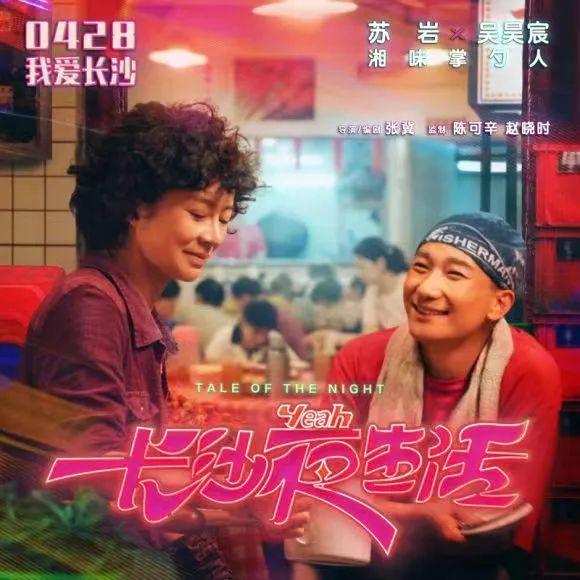
Su Yan as Sister Li, Wu Haochen as Brother Xu
Zhang Ji:In the movie, Sister Li is looking for a successor on the surface, but actually she wants her family to sit together again. And this time I hope that Su Yan's performance can bring out a sense of fatigue. For example, she has tenosynovitis and has been wearing wristbands since she appeared in the film; the meal at night is a bowl of porridge, because she is afraid of getting angry; I have a bad waist. This is what I got from observing and contacting the bosses of five or six food stalls who work all night. They will wear waist guards before going to work. Bad waists are almost a common problem among them. In addition to this kind of welcome and send-off business, they are very familiar with local customs and taboos. When eating in Changsha, you can’t serve fish as the sixth course. Serving fish is equivalent to serving tea to see off guests. fish. I think it doesn't matter whether the audience can see these details, the key is to let the actor believe, so that she can have this confidence: I am a proprietress.
An old actor like Su Yan, between her and me The communication is very simple. When she got this role, she first wanted to play it. On the first day of work on the set, she looked at me and I looked at her in front of the camera, and everyone felt comfortable with each other, so that was OK. For a plot, she can give me several ways to perform it for me to choose. The only thing is the role of the proprietress. The most difficult thing to play is the sense of relaxation. Her performance at the beginning was still a little "tight", so I designed some props and details for her to help her "break" (the sense of tension), such as The movements of supporting the waist, working with wrist guards, and serving a plate of peanuts for her to peel and talk during the dialogue, all these are to give her a grasp when performing.
The Paper:At the end of the film, Sister Li and Brother Xu (played by Wu Haochen) hold hands, which is unexpected and reasonable.
Zhang Ji: Regarding the foreshadowing of the relationship between the two of them, in fact, in the acquaintance of the two of them working together to manage the food stalls, there is also a meal, a meal, and every move. implied. In the processing of this emotional line, I used the writing method of "covering" and showing it in a line-drawing style, leaving a lot of blank space and aftertaste for this group of characters. In the past period of time, we have used Western psychological analysis for reference, including the theme of religious salvation, to set up Chinese plots. But later I found that it was still not vivid enough, and I always felt that there was a piece of skin and it couldn't fit together completely.
The Paper: Zhang Yixing's performance this time is impressive, and acting in his hometown seems to have brought him a special sense of freedom and confidence.

Zhang Yixing as He An
Zhang Ji:Yes, he is from Changsha himself and has special feelings for his hometown. The first time we met, we talked about the importance of his role, he had to develop a sense of belief in this movie. Zhang Yixing's reply to me was, that's good, I will speak Changsha dialect throughout this film. During the filming process, his first scene was a breakup with his girlfriend, and he inadvertently said a sentence in Mandarin. This was only discovered in the later stage of production. I specially recruited him again and recorded a line in Changsha dialect. He wants to be the first actor in the world to speak Changsha dialect throughout a movie, and I want to fulfill him (laughs).
During filming, he chatted with Yin Fang, two people from Changsha It was very speculative, even in Changsha dialect, and this kind of affection was brought to the end of the film when everyone reunited for the first time. As the eldest brother, Zhang Yixing showed his sister (played by Zhang Jingyi)'s boyfriend (played by Yin Fang) when they first met. on friendly. Zhang Yixing's performance can be said to be a breakthrough. When you see him performing a talk show, he is so free and easy. The live group performers were completely amused by him spontaneously.
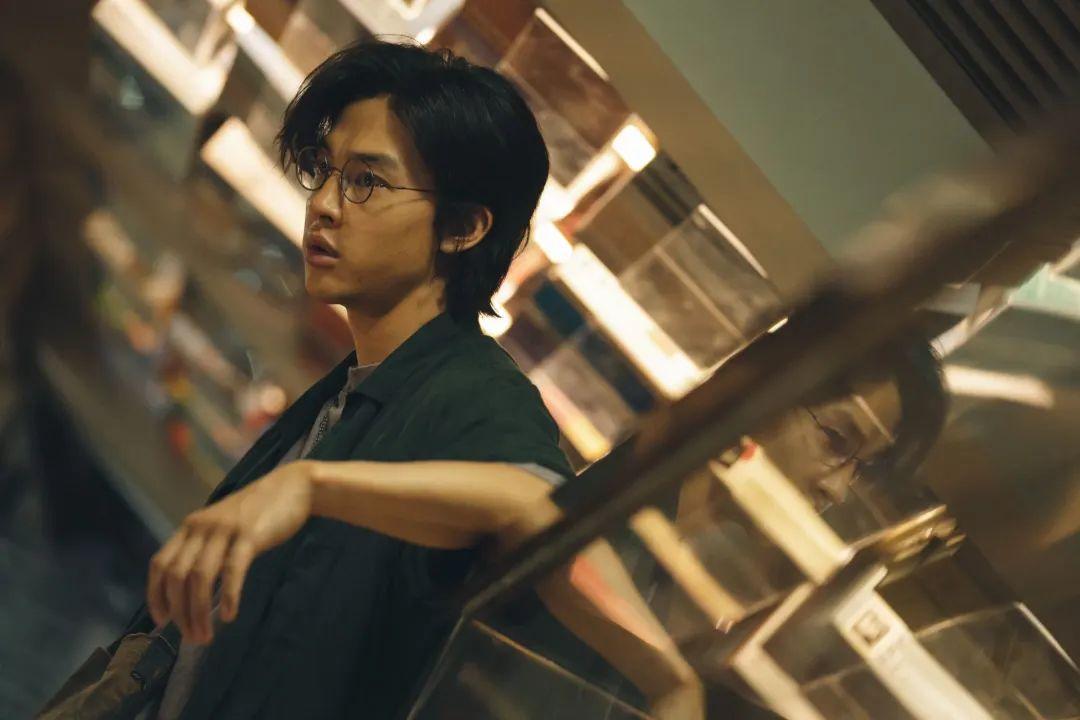
Yin Fang decoration is for
The Paper: Most of the actors in "Nightlife in Changsha" are from Hunan. It can be said that the stars of "Xiang" will meet, but in my opinion, you are based on your past experience and vision in this movie. Or you are standing in Beijing, even telling a "Changsha story" at the height of Chinese-language movies.
Zhang Ji:This movie originally had an English name "Language and Night". , and the use of dialects is too important for the landing of movie stories.
On the big screen in recent years, the main body of domestic stories The value is obviously improving, and I am also actively looking for some traditional writing methods, such as line drawing and blank space. Our fourth generation directors have explored these. At the same time, the dialogue of "Changsha Nightlife" is so dense, and the "night" is so thorough, it is still a modern movie. I personally like the French New Wave very much. The films of that period no longer pursue dramatic and strong plots, and do not have such strong dramatic conflicts. So this seems to be the way to say it. Now I don't want to be so local, or so Western. I can refer to and learn from the excellent drama traditions of the East and the West.
The Paper: Going back to the beginning of our conversation, you said that the script of this movie has actually gone around in the circle of mainstream directors, is it true that some people are not optimistic about making movies like this market?
Zhang Ji:Current movies are indeed facing a crisis, even in Hollywood there is an obvious weakness of "showing weakness". My creation this time is at least innovative and sincere. The confidence lies in my observation and experience of the night life in Changsha over the past few years. I use my true feelings to present the local value and emotional belonging in the film. It may be traditional, but today you can say that "tradition" is also a kind of innovation? At the same time, this "tradition" does not mean conservative.
In the past two days of interviews, reporters kept asking me, is it It's not that the title of the movie "Changsha Nightlife" will hinder audiences in other cities from watching the movie. According to this statement, "Good Morning Beijing", "Midnight in Paris", "Tokyo Story" and "New York Story" are not valid, but it is obviously not the case. In my opinion, this just shows that today's Chinese urban films must take this step. To let the audience get used to urban films is not a local propaganda film, but a connection of our common life, emotions and values.
This movie is very important to me, It's also because when I was a movie fan, I was not so utilitarian, and I didn't want to become a screenwriter at all. What is the reason why I fell in love with movies? It is those movies that I watch alone at night, those movies that describe the night, and those "life flow" movies that move me.
None of them have such a strong plot, Fellini's This is true of "Cabirian Nights", Godard's "As You Like". This time we filmed "Changsha Nightlife", the local area specially allowed us to shoot a night scene in Yuelu Academy, "Only Chu has talents, and it is prosperous here", but this time we want to show its ordinary rice fields. It is also a quiet place at night, and I think it is very rare for young people to wander there.
Editor Zhou Xin
Articles are uploaded by users and are for non-commercial browsing only. Posted by: Lomu, please indicate the source: https://www.daogebangong.com/en/articles/detail/Changsha%20Nightlife%20director%20Zhang%20Ji%20a%20screenwriters%20little%20nostalgia%20and%20big%20adventure.html

 支付宝扫一扫
支付宝扫一扫 
评论列表(196条)
测试